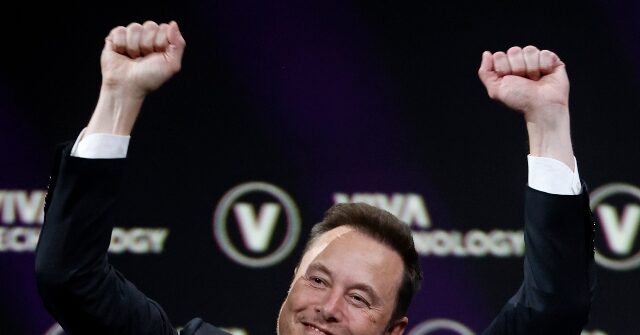Elon Musk’s SpaceX successfully launched a Falcon 9 rocket today from Cape Canaveral Space Force Station in Florida, setting a new record for rocket reusability.
Space.com reports that SpaceX continues to push the boundaries of rocket reusability and dominates the private space industry, as evidenced by the successful launch of a Falcon 9 rocket on its record-breaking 24th flight. The mission will deliver 24 Starlink internet satellites to low Earth orbit (LEO). The company’s recent success has caused its potential valuation to reach $350 billion, making it one of the most valuable startups in the world.
The launch can be viewed at the the one hour mark in this livestream:
This particular Falcon 9 first stage booster had previously flown 23 times, a record it shared with two other boosters. With this 24th successful launch, it now stands alone as the most reused rocket in SpaceX’s fleet. The accomplishment highlights the company’s ongoing efforts to reduce the cost of spaceflight through the development of reusable rocket technology.
Approximately eight minutes after liftoff, the Falcon 9’s first stage successfully landed on the drone ship “A Shortfall of Gravitas” stationed in the Atlantic Ocean. This marked the booster’s 24th successful landing, further demonstrating the reliability and durability of SpaceX’s rocket technology.
Meanwhile, the rocket’s upper stage continued its journey to deploy the 24 Starlink satellites into their intended orbit. Starlink, a massive satellite constellation project by SpaceX, aims to provide high-speed internet access to users worldwide, particularly in remote and underserved areas. With this launch, the number of operational Starlink satellites in orbit now exceeds 6,750, making it the largest satellite constellation ever assembled.
The Falcon 9 rocket, along with its more powerful sibling, the Falcon Heavy, has been instrumental in SpaceX’s success. To date, the company has launched more than 400 successful Falcon 9 missions and has achieved 377 successful first stage landings. These achievements have significantly contributed to the advancement of the space industry, making space more accessible and affordable.
As SpaceX continues to refine its reusable rocket technology, it is expected that the company will achieve even more impressive milestones in the future. The increased launch frequency and cost savings associated with reusable rockets have already attracted numerous commercial and government clients, solidifying SpaceX’s position as a leader in the space industry.
SpaceX’s success has led to a potential valuation of $350 billion, making it one of the world’s most valuable startup. In a tender offer expected to occur later this month, insiders are looking to receive a dramatically higher valuation than the $210 billion figure reported earlier this year. As a private company, SpaceX does not disclose its financial details publicly, but industry analysts have made informed estimates regarding its revenue and earnings growth.
Starlink, SpaceX’s satellite internet service, is a major contributor to the company’s higher valuation. Starlink’s subscriber base has grown to nearly 5 million users across 114 countries, representing a 100 percent increase in the past year. This rapid expansion is fueled by the service’s ability to provide high-speed internet to remote and underserved areas.
SpaceX’s launch business is also booming, with the company on track to complete approximately 130 launches in 2024, more than half of all global rocket launches. The U.S. government is one of SpaceX’s largest launch customers, with the Defense Department and NASA dependent on the company’s capabilities.
Read more at Space.com here.
Lucas Nolan is a reporter for Breitbart News covering issues of free speech and online censorship.
Read the full article here
